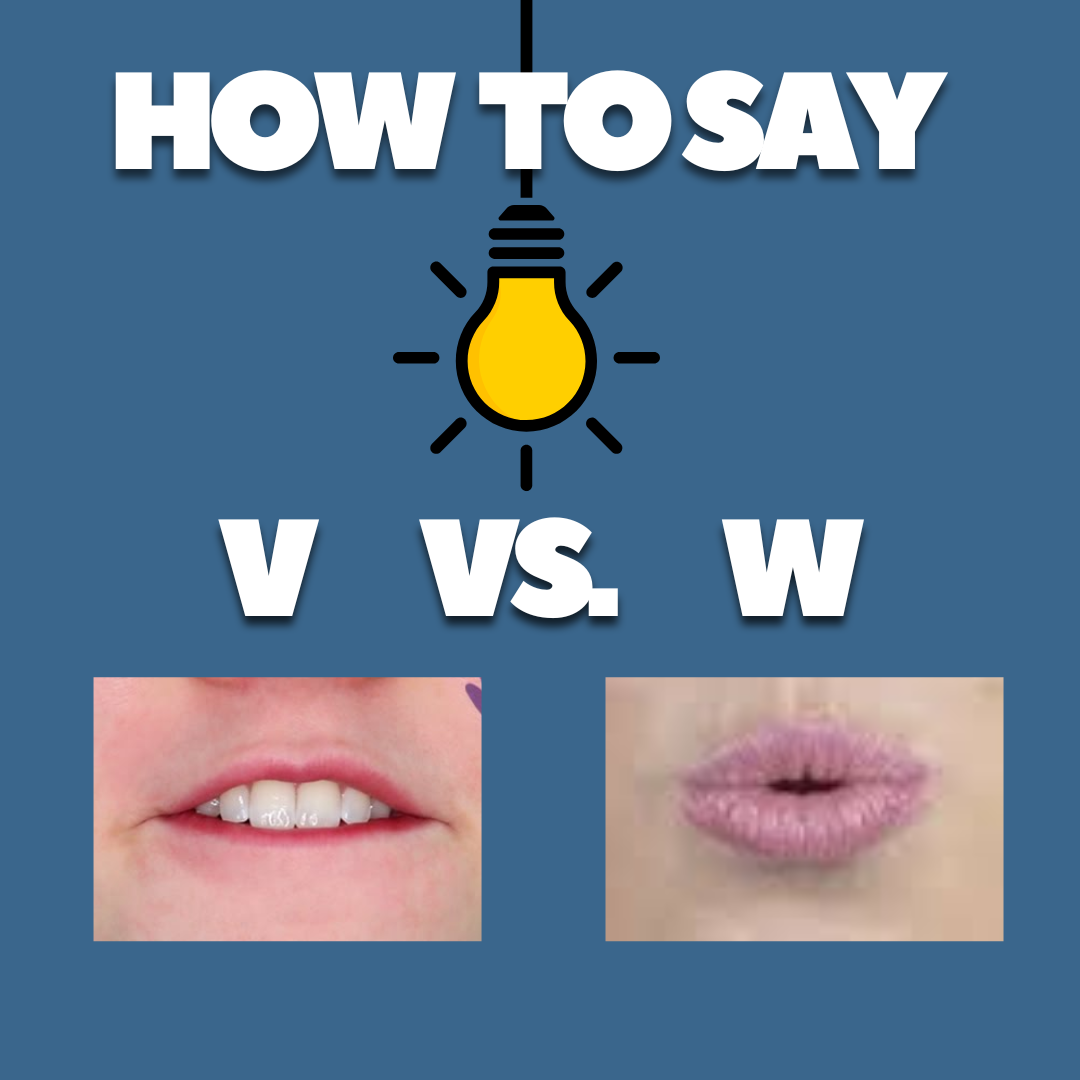
Have you ever heard someone say “west” when they meant “vest”, or “wine” when they meant “vine”? You’re not alone!
Many English learners mix up the V and W sounds — and there’s a good reason for it.
In this post, you’ll learn why people confuse these two sounds and discover easy, practical tips to pronounce each one clearly.
🌍 Why People Mix Up V and W
1. Not All Languages Use Both Sounds
In English, V and W sound different, but not every language makes that same distinction.
- In German, the letter “W” is pronounced like the English /v/, so “willage” might replace “village.”
- In Indian languages, V and W often sound the same.
- In Japanese or Korean, the /v/ sound doesn’t exist — speakers may use /b/ or /w/ instead.
When a sound doesn’t exist in your first language, your brain substitutes a familiar one.
👉 Learn more on English Stack Exchange.
🗣️ How to Pronounce the /v/ Sound
Step 1: Teeth on the Lower Lip
To make the /v/ sound:
- Place your top teeth lightly on your bottom lip.
- Turn on your voice — your throat should vibrate.
- Let air flow out gently between your teeth and lip.
Try these words:
van – very – voice – over – love – seven
You should feel a gentle buzz under your bottom lip.
🎥 Watch: How to Pronounce V and W in English
💋 How to Pronounce the /w/ Sound
Step 1: Round Your Lips
To pronounce /w/ correctly:
- Do not touch your teeth to your lip.
- Round your lips like you’re blowing a kiss.
- Start with a soft “wuh” sound.
Try these words:
west – will – window – wonder – water
It should sound smooth and rounded, not buzzy.
👉 See it on BBC Learning English.
🎧 Practice: Hear and Feel the Difference
| Sound | Mouth Position | Teeth Touch? | Example Words |
| /v/ | Upper teeth on bottom lip | ✅ Yes | van, vest, love |
| /w/ | Lips rounded | ❌ No | west, window, water |
Pro Tip:
Put a finger under your bottom lip. If it vibrates, it’s /v/. If your lips just round, it’s /w/.
Minimal Pairs for Practice:
- vine / wine
- vest / west
- veil / whale
- vice / wise
- vote / woad
Record and listen to your own voice — awareness is the first step to clarity.
⚠️ Common Mistakes and How to Fix Them
Over-Correcting
Some learners overcompensate — turning every /v/ into /w/. Focus on lip and teeth placement, not exaggeration.
Forgetting to Use Your Voice
If your /v/ sounds like /f/, check your vocal cords. They should be vibrating.
Lip Position Confusion
If your teeth touch during /w/, it’ll sound wrong. Practice in front of a mirror to build muscle memory.
🧠 Fun Practice Ideas
- Mirror Drill: Say vest, west ten times slowly.
- Tongue Twisters:
- “Vera’s velvet vest was very warm.”
- “Wendy will wash the white wool.”
- Recording Challenge: Record both and compare your pronunciation.
- Listen & Repeat: Repeat after native speakers in videos or podcasts.
📸 Image idea: A person practicing speech in front of a mirror.
💡 Why Clear Pronunciation Matters
Getting the V/W difference right helps people understand you instantly and improves confidence in your English.
Example: saying “I went to the vest side of town” instead of “west side” might confuse your listener!
👉 For personalized help improving your pronunciation, book an Accent Modification Session with Natalie Cohen, SLP.
🌱 Keep Practicing — You’ll Get It!
Training your mouth and ears takes time, but with daily effort, you’ll hear real progress.
Remember:
- /v/ = teeth on lip + buzzing
- /w/ = lips rounded + smooth glide
Practice daily — your clarity and confidence will grow with every word.
🔗 Helpful Links
External Resources:
- BBC Learning English – The V and W Sounds
- English Stack Exchange Discussion
- WordReference Forum – V/W Pronunciation
Internal Links:
